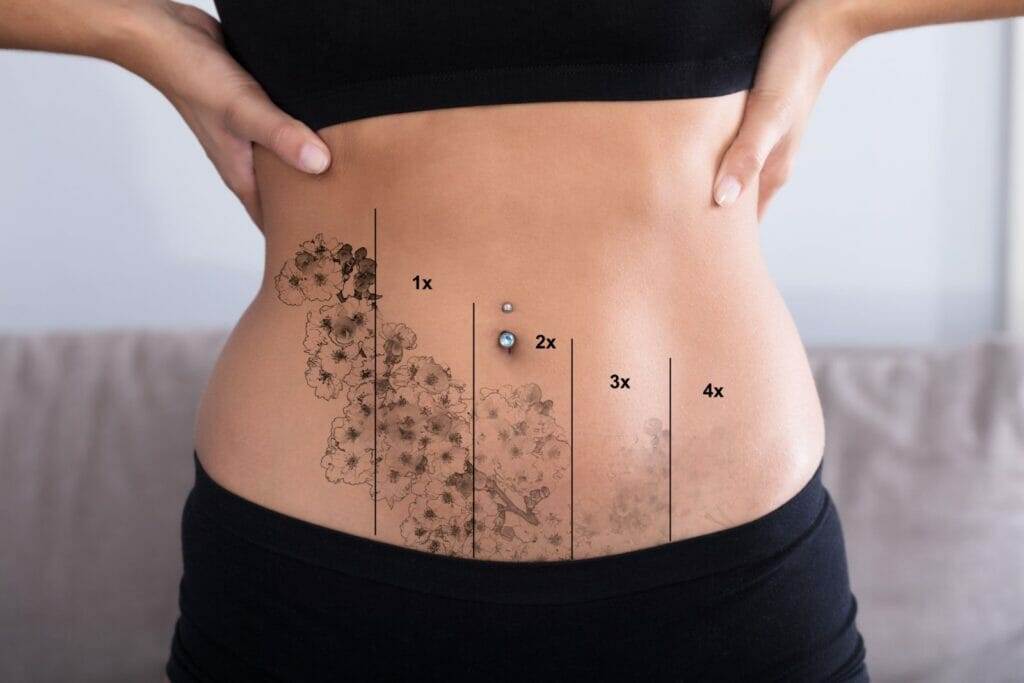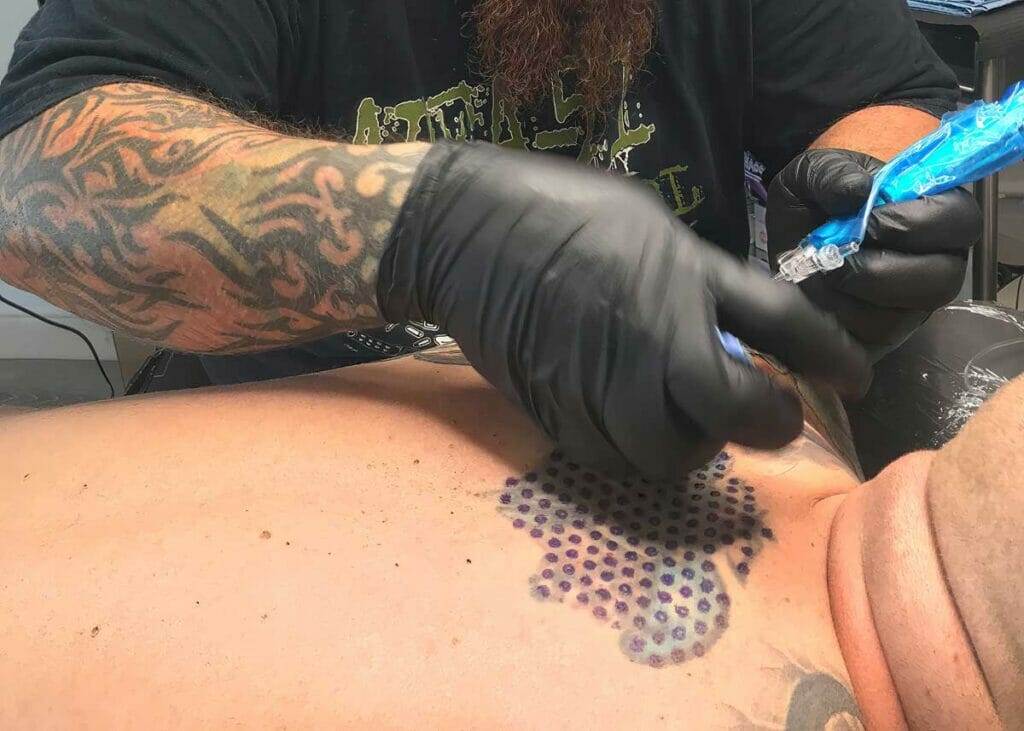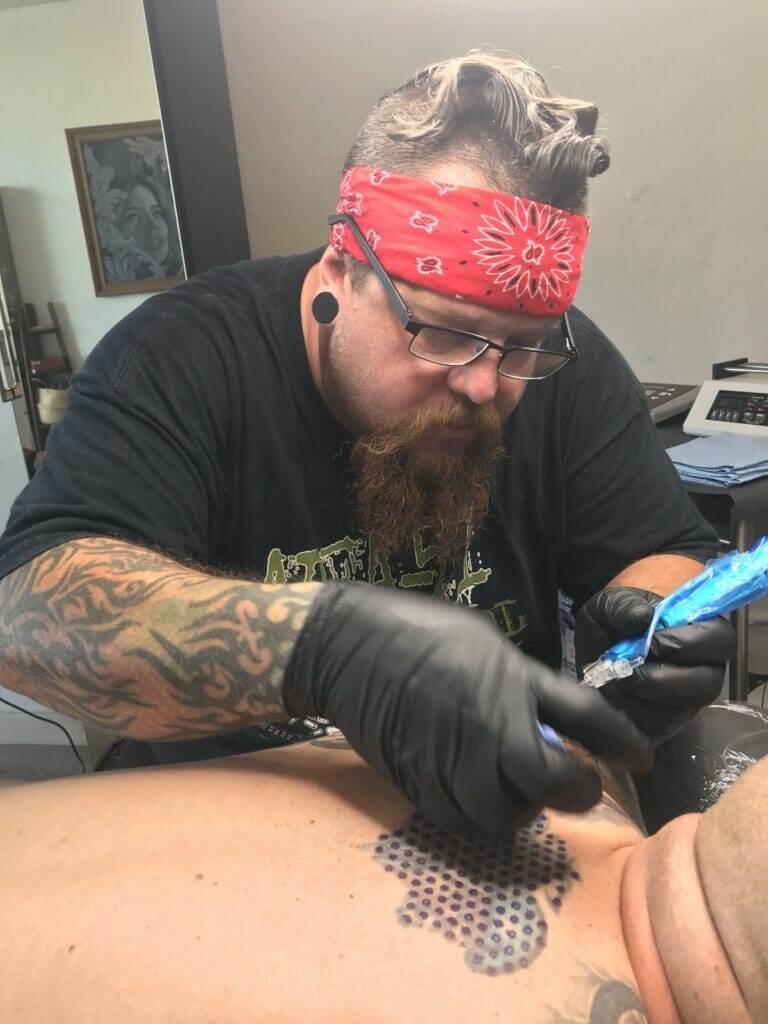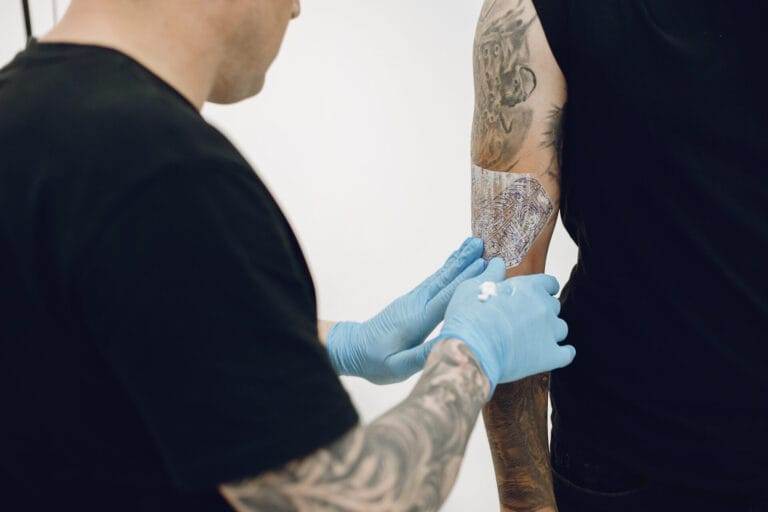Tattoos have become increasingly popular in recent years, with more and more people choosing to get inked as a form of self-expression. However, not all tattoos turn out as planned, and many individuals find themselves regretting their decision. The emotional toll of regrettable tattoos is an important topic to discuss, as it can have a significant impact on an individual’s mental health and well-being. In this article, we will explore the emotional impact of regrettable tattoos, the rise of tattoo removal as a solution, and the psychological benefits of undergoing the procedure.
Understanding the Emotional Toll of Regrettable Tattoos
Regrettable tattoos are those that individuals come to regret due to various reasons. These reasons can range from dissatisfaction with the design or placement of the tattoo to changes in personal beliefs or values over time. The emotional impact of regrettable tattoos can be significant, as they serve as a constant reminder of a decision that was made without careful consideration.
Common reasons for regret include getting a tattoo at a young age without fully understanding the long-term implications, choosing a design that no longer holds personal meaning, or experiencing negative reactions from others due to the tattoo. These feelings of regret can lead to feelings of shame, embarrassment, and self-consciousness.
The Rise of Tattoo Removal: Why More People are Opting for the Procedure
In recent years, there has been a significant increase in the number of people opting for tattoo removal procedures. According to statistics, the demand for tattoo removal has grown by 32% in the past decade. This rise in popularity can be attributed to several factors.
One reason for the increase in tattoo removal is the growing acceptance and accessibility of the procedure. In the past, tattoo removal was seen as expensive and painful, with limited success rates. However, advancements in technology have made the process more effective and less painful, making it a viable option for those seeking to remove their regrettable tattoos.
The Psychological Benefits of Tattoo Removal: A Closer Look
Tattoo removal not only addresses the physical aspect of regrettable tattoos but also has significant psychological benefits. One of the main benefits is improved self-esteem and confidence. Many individuals with regrettable tattoos feel self-conscious and may avoid certain social situations or clothing that reveals their tattoo. By removing the tattoo, they can regain their self-confidence and feel more comfortable in their own skin.
In addition to improved self-esteem, tattoo removal can also reduce anxiety and depression. Regret over a tattoo can lead to negative emotions and thoughts, which can contribute to mental health issues. By removing the tattoo, individuals can alleviate these negative emotions and experience a sense of relief.

From Shame to Confidence: How Tattoo Removal Can Boost Self-Esteem
The stories of individuals who have undergone tattoo removal and experienced a boost in self-esteem are numerous. For many, the removal of a regrettable tattoo is a transformative experience that allows them to let go of shame and embrace their true selves.
One such individual is Sarah, who had a tattoo on her forearm that she deeply regretted. She felt self-conscious whenever she wore short sleeves or attended social events. After undergoing tattoo removal, Sarah noticed an immediate improvement in her self-esteem. She no longer felt the need to hide her arm or worry about what others thought of her. The removal of the tattoo allowed her to embrace her true self and feel confident in her own skin.
The Role of Regret in the Decision to Remove a Tattoo
Regret plays a significant role in the decision-making process when it comes to tattoo removal. It is important for individuals to acknowledge and process their regret before deciding to undergo the procedure. Ignoring or suppressing feelings of regret can lead to further emotional distress.
Acknowledging regret allows individuals to take ownership of their decision and take steps towards rectifying it. By facing their regret head-on, individuals can begin the healing process and move towards a place of acceptance and self-forgiveness.
The Importance of Emotional Support During Tattoo Removal
The decision to undergo tattoo removal can be emotionally challenging, and having a strong support system in place is crucial. Friends, family, and mental health professionals can provide the necessary emotional support during this time.
Friends and family can offer a listening ear, provide encouragement, and help individuals navigate the emotional ups and downs of the tattoo removal process. Mental health professionals can provide additional support through therapy or counseling, helping individuals process their emotions and develop coping mechanisms for any emotional distress that may arise.
The Physical and Emotional Pain of Tattoo Removal: What to Expect
Tattoo removal is not without its physical and emotional pain. The physical pain can vary depending on the size, color, and location of the tattoo. Laser tattoo removal, the most common method used, involves using high-intensity laser beams to break down the tattoo ink. This process can cause discomfort and pain similar to getting a tattoo.
In addition to physical pain, individuals may also experience emotional pain during the tattoo removal process. The removal of a regrettable tattoo can bring up feelings of sadness, loss, and even grief. It is important for individuals to be prepared for these emotions and have strategies in place to manage them.
The Healing Process: Coping with the Emotional Fallout of Tattoo Removal
The healing process after tattoo removal involves more than just physical recovery. It also requires individuals to cope with the emotional fallout that may occur. Strategies for coping with emotional fallout include practicing self-care, seeking support from loved ones or professionals, engaging in activities that bring joy or relaxation, and allowing oneself time to grieve the loss of the tattoo.
Self-care during the healing process is essential for emotional well-being. This can include activities such as exercise, meditation, journaling, or engaging in hobbies that bring joy. It is important for individuals to prioritize their emotional well-being and take the time to heal both physically and emotionally.
The Impact of Social Stigma on Tattoo Removal
Despite the growing acceptance of tattoos in society, there is still a stigma surrounding tattoo removal. Some individuals may face judgment or criticism for choosing to remove a tattoo, as it is seen as a sign of regret or indecisiveness. This social stigma can add an additional layer of emotional distress for those considering tattoo removal.
To combat social stigma, it is important for individuals to remember that their decision to remove a tattoo is a personal one and should be based on their own feelings and well-being. Surrounding oneself with supportive and understanding individuals can also help alleviate the impact of social stigma.
The Decision to Cover Up vs. Remove a Tattoo: Weighing the Emotional Pros and Cons
When faced with a regrettable tattoo, individuals have the option to either cover it up with another tattoo or undergo tattoo removal. Both options have emotional pros and cons that should be carefully considered.
Covering up a tattoo can provide a temporary solution and allow individuals to hide their regrettable tattoo without undergoing the removal process. However, it is important to consider whether covering up the tattoo will truly address the underlying emotions and provide long-term relief.
On the other hand, tattoo removal offers a permanent solution that allows individuals to completely remove the regrettable tattoo. This can provide a sense of closure and allow individuals to move forward without the constant reminder of their regret.
Moving Forward: Life After Tattoo Removal and the Power of Letting Go of Regret

After undergoing tattoo removal, individuals have the opportunity to move forward and let go of their regret. This process can be empowering and liberating, allowing individuals to embrace their true selves without the weight of past decisions.
Letting go of regret can have a positive impact on an individual’s mental health and well-being. It allows for personal growth, self-acceptance, and the ability to make decisions based on one’s own values and desires. By prioritizing emotional well-being and letting go of regret, individuals can create a brighter future for themselves.
The emotional toll of regrettable tattoos is an important topic to discuss, as it can have a significant impact on an individual’s mental health and well-being. Tattoo removal offers a solution for those seeking to remove their regrettable tattoos, providing both physical and psychological benefits. It is important for individuals to prioritize their emotional well-being and seek support during the tattoo removal process. By acknowledging and processing their regret, individuals can move forward and embrace their true selves.








